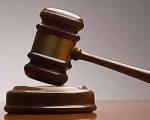Court Ban vs President’s Words

Ukraine’s public officials continue to demonstrate blithe disregard for glaring discrepancies between words and actions. The Kyiv City Administration has just applied for and received a court ban on demonstrations in the centre of Kyiv from Sunday, Dec 1 to Dec. 7 (or possibly Jan. 7 2014 - the ruling was issued in the night, and there seem to be different dates written). Although the list of streets named in the application does not include St Michael’s Square where a huge rally is planned for Sunday, the ban gives enormous scope for restricting freedom of peaceful assembly and heavy-handed measures against peaceful protesters should the wish arise. Events over recent days leave no doubt that this wish is strong among Ukraine’s leaders.
Strong too is the continuing belief that fine-sounding assurances will do the trick regardless of the real situation. President Yanukovych first “applauded” peaceful EuroMaidan protesters while such protests were being banned throughout the country. Then on Saturday evening he expressed “outrage” over the brutal removal of peaceful protesters from Maidan Nezalezhnosti on Saturday morning though there are weighty reasons for believing that the decision to use force was made in advance and at the highest level. Sweden’s Foreign Minister Carl Bildt has suggested that the order came from Yanukovych himself.
Meanwhile Interior Minister Zakharchenko was claiming in a meeting with EU representatives that there had been no attack on defenceless young demonstrators, but only measures against “provocateurs” His words are contradicted by all video footage, as well as the reports by foreign correspondents on the scene.
There have been widespread and strong statements condemning the violent treatment of peaceful protesters. It is therefore particularly frustrating that the Kyiv City Administration [KCSA] whose head, Oleksandr Popov is seen as the president’s protégé, should have still sought to restrict people’s legitimate right to gather peacefully and express their views. And of course that the District Administrative Court in Kyiv has once again obliged.
The ban covers Maidan Nezalezhnosti, European Square, all central bodies of power, thus extending to Bankova St and the president’s administration; Hrushevsky St, and other streets. New Year preparations are the only pretext given, which hardly explains why Bankova St should be included. Except, of course, to enable the president and government to hide from the Ukrainian public defending their right to peaceful protest and the European future they want for themselves and their children.
The ban is quite simply unlawful and unwarranted. It indicates et again the need for real measures to get it through to Ukraine’s leaders that all words about observance of citizens’ rights will be judged by actions. So far those warrant the harshest assessment.





